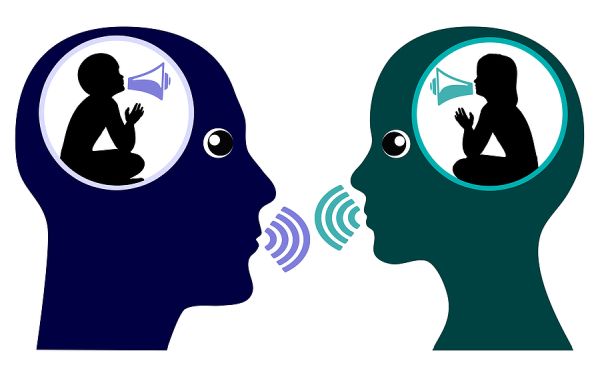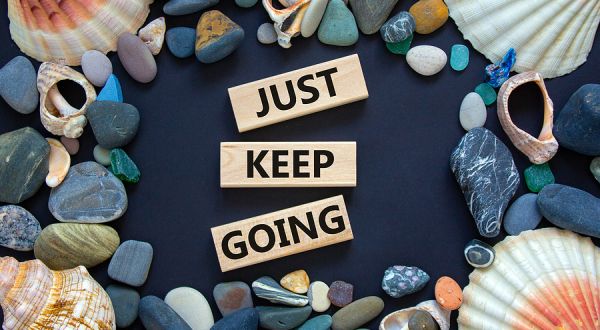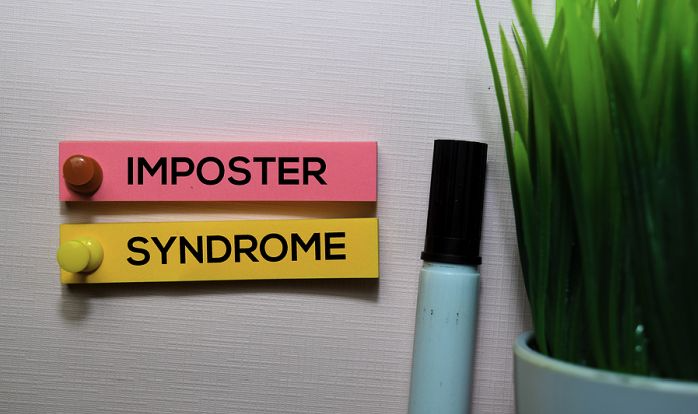Good News for You
If you are someone who suffers from imposter syndrome, I’ve got good news for you. This means that you are a good person. For real. But what causes imposter syndrome? And more importantly, how can we overcome it?
I know my statement that “this means you are a good person” may take you by surprise. But hear me out. I can explain.

Statistics show that 70% of all people suffer from Imposter Syndrome at some point in their life. Does this mean that 70% of the people are good people?
I sure hope so! We could all use some good news on that subject.
But let’s get back to the topic at hand…
What Causes Imposter Syndrome?
Before we go into the ways to get over this struggle, we need to first talk about what it is, where it comes from, and how to understand it. Now, here’s my theory on it…
I believe that imposter syndrome can happen in two phases. (You won’t read this anywhere else.)
But…
That is based on my own experiences. I kept hearing my mentors talking about this “imposter syndrome” and I wanted to find out…
What is it? What causes imposter syndrome? Do I have it? So, research I did.
The term “Imposter Syndrome” was first coined by two psychologists in 1978. Their names were Suzanna Imes and Pauline Rose Clance. It was described in a research paper they did entitle, “The Imposter Phenomenon of High Achieving Women: Dynamics & Therapeutic Intervention.”

So why does my experience tell me that it comes in two phases? Because I have every single symptom EXCEPT for success. So, we will start with the official definition, followed by my personal experience. I don’t normally count backward, but it just makes more sense in this case.
Hopefully, you get where I am coming from. And where I am going.
Phase 2: The Successful Imposter
A lot of articles I ran across said that this happens after a person achieves success. These articles suggested that they feel like a “fraud” who will be “found out.” The reason is that they do not feel worthy of success. For example, Jodie Foster and Meryl Streep were said to have had it. And they most certainly achieved success.
I think in this situation a common problem is the feeling of “not feeling worthy.” Or feeling like people will find out that you belong somewhere else.
It could also mean that they don’t feel that deserve all of the fame and fortune.
Phase 1: The Self-Sabotaging Imposter
But what made me wonder if I had it was because I took a LOT of courses and studied marketing for YEARS. Yet, I couldn’t get past the “going public” part of the equation. So, I changed my mind. Like a LOT. Because I desperately wanted to find a way to succeed where I did not have to be on camera. A way that I did not have to go public.
This took me through a lot of phases and questions and answers. Such as, for starters, “What is wrong with me?” I knew it wasn’t because I didn’t like people. I do. Most of the time.

But it became glaringly obvious that one thing I did not want to be was… Famous. My privacy was valuable to me.
And… I was afraid of what people would say or think. Afraid of criticism. Of not being able to please everyone.
All of this led to the question, “Do I have imposter syndrome?” And “What is that, anyway?”
After studying the subject quite intensely, I decided, “yes, I do.” Why? Because everything fit, except for the success part.
This was the very thing that kept me from succeeding.
Especially the “anxiety” part.
“Clinically, I don’t see a lot of people who have imposter
syndrome who don’t have anxiety.”
~~ Audrey Ervin, psychologist, and academic director
at Delaware Valley University.
How could I pretend to be a success if I were not a success? Yet, I had thousands of dollars invested, along with years of knowledge to share. I mean, I know some stuff. Right?
So, I began to ask myself, “How did I get this way?”
And more importantly, “How can I break through this ceiling?”
This roadblock? And this wall?
How did I get this way?
8 Characteristics of Imposter Syndrome
Let’s start by talking about the problems, and what causes them. We will go over them one by one.
- Perfectionism: Did I have it? You betcha. I never wanted to put anything out there unless it was absolutely, beyond a shadow of a doubt, perfect. If I had to go public, then for sure, it was going to be something breathtakingly amazing for all to see.
- Self-Doubt: Did I have this? Only if a person who questions and doubts every single decision they make has it. There appeared to be a pattern. I would have a great idea. Spend money on getting started. Then spend weeks putting it together, and then BAM. All of a sudden, it wasn’t a good idea anymore. I would find a reason to cause it to fall apart.
- Feel Like a Fraud: Did I have this? Well, I would sound like some kind of authority on the topic and then realize that I wasn’t making any money. How could I be an authority on business if I wasn’t banking the proof?
- Feel Like I Don’t Deserve It: Was this me? Heck yeah. Not because I haven’t worked hard for success. And certainly not because I didn’t know. The reason was more like because of that little voice. You know the one that says, “You make mistakes. Nothing you do is right. Think you are worthy? Think again.”
- Inability to Assess Competence and Skills: Was this me? Hmmm. I knew I had competence and skills. Except for when it came to taking money from people. Then I fell flat on my face.
- Overachiever: Was I an overachiever? I sure as heck tried to be. That’s for sure.
- Fear of Living Up to Expectations: Oh heck yeah. I was the people pleaser of all people pleasers. Could I make everybody happy? Experience says, uh…. No.

- Set Challenging Goals For Myself and Then Falling Short: Yes, that’s what challenging goals are. They are challenging. Easy to reach? Nope. Do I set them? Yep.
8 More Characteristics of Imposter Syndrome
- Over-prepare: Do I feel like I never know enough? Like I am never ready? Like no matter how much I study, I don’t know what I need to know. Until finally, I study so much that I can’t remember what I do know. So yes, I try to over-prepare. But then I can’t remember the preparations.
- Can’t Internalize Success: Was this me? Well… if a person who focuses more on the things they do wrong than the things they do right falls into this category, then I would say… Maybe. But I’m working on that one. For sure.
- Social Anxiety: Me? CAN I SCREAM YES at the top of my lungs? No amount of emphasis could do this one justice. I am terrified of having people “look at me.” I’m like, “Don’t look at me! Please!”
- Core Beliefs About Inadequacy: Uh, yes. (Even in light of evidence to the contrary.) I felt inadequate much of the time. But again, I’m working on this one as well.
- Agonize Over Small Mistakes? See Number 10. Ditto.
- Sensitive to Criticism: I don’t like it. Let’s put it that way. Does anyone?
- Family Valued Achievement? Yes, they did, and yes I do too.
- Feeling Like I Don’t Belong: Yes, yes, and yes. See Number 11. I have struggled with this most of my life. Here’s the thing – we ALL need to belong. But we don’t always feel like we DO belong.
8 Final Characteristics of Imposter Syndrome
- Trouble Asking for Help: Not only did I have trouble asking for help, but I had trouble asking for money. Yet, in that same breath, would I help you or give you money? Sure! Even if I was penniless.
- Afraid of Looking Stupid: Let’s put it this way. I read that today and just yesterday I said to my coach, “I think I’m afraid of looking stupid.” Bingo.
- Downplay Accomplishments: Who me? Nah.
- Self-Sabotage Success: If I were the poster girl for anything, I think this would be it. I get up to the finish line, and then I turn around and go back to the beginning again. Why? The correct answer is “All of the Above.” Shall I go on?

The 5 Main Types of People With Imposter Syndrome
According to Dr. Valerie Young, there are 5 main types of people who suffer from imposter syndrome:
- The Expert: This person feels like they MUST know EVERYTHING about the subject before moving forward. Because they spend so much time researching topics, it is difficult to move forward. (ME.)
- The Perfectionist: Nothing is ever good enough. They focus on what they need to do to improve, instead of focusing on accomplishments. (ME.)
- Natural Genius: They master skills quickly and easily, they become surprised when a goal is more difficult than they had expected. (Not sure about that one.)
- The Soloist: A person who enjoys working alone, but finds it difficult to ask for help when needed. They prefer to work alone than to bother people for assistance. (ME.)
- The Superhero: Puts forth extreme effort in an attempt to “prove” that they deserve to succeed. (ME.)
Why These “Imposter Syndrome People” Are Good People
So what would cause a person to self-sabotage their success like that? What causes “Imposter Syndrome?”
Now we are coming back to my theory on why these people are good.
A person who refuses to move forward because they feel like a “fraud” if they do, is quite frankly, an honest person.
“True imposters don’t have this feeling.” ~~ Dr. Albers.
Example: No matter how much knowledge I may have about a topic, particularly a topic relating to “making money,” if I am not making money, how can I teach such a thing? If I do move forward and pretend to be successful (when I am not), then I AM a fraud. I’m lying.
Don’t Get Stuck!

So here I am. STUCK.
Kind of like when you are first learning how to drive. You can’t drive without a driver’s license but you can’t get a driver’s license until you know how to drive.
Excuse me? How does that work, exactly?
I recently signed up for a job site and they wanted testimonials. Again. I can’t get testimonials without a job but I can’t get a job without testimonials.
Sigh.
What a complicated world we live in sometimes.
The Big Question: How Do We Solve It?
But the big question is, how do we solve it? How do we break through that ceiling?
So, the other day, I had a conversation with my coach about this exact thing. And he said to me, “Just be honest. Tell them how you feel and why you feel that way.”
Huh? But how can I be the authority?
He said, “You are the authority about all the things you do know. Just talk about those things and be honest about the rest.”

Wow. This is why he makes the big bucks. Lol
He also told me to build a group (or community) of people with who I could see myself being friends in real life. So, if you can relate to all of the things we have talked about so far, then there’s a good chance we could be friends.
Which means…
You Need to Join My Group
Because all of the things we talked about in this article, get WAY more attention in the group. The topic in this article falls under the category of “Seller Psychology.” I made that up (I think), but it works.
In other words, psychology and personal development and self-help for the entrepreneur.
And then we also talk a lot about “Buyer Psychology.” What makes people want to do business with you? And buy something?
I already know you are honest. So, come on in!
Would you like to receive several FREE “Beginner to Expert” marketing courses? Click the banner below to get your first FREE course!



